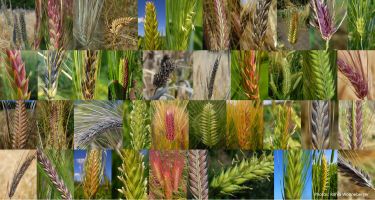Genetics

Sciences & Technology
Research
The time is ripe for chronoculture
A better understanding of circadian rhythms in crop plants can help improve agricultural production

Health & Medicine
Go Figure
Just how identical are identical twins?
Myths and legends have surrounded twins for centuries. Here, we explain how they’re formed, how alike they really are and what twins teach us about human health

Health & Medicine
Research
Cutting the diagnosis journey for children born with rare genetic diseases
Families can wait years for a diagnosis of a rare genetic disorder, but a new test can provide answers in days for a better understanding of the condition and potentially earlier treatment

Sciences & Technology
3 reasons why the release of GM mosquitoes in Queensland is risky
We do need to control disease-carrying mosquitoes in Australia, but more research is needed on GM strains before their proposed release in Queensland

Sciences & Technology
Under the Microscope
How Australia’s ancient forests became an arid zone
Studying the genetic relationships between desert plants is helping Dr Rachael Fowler to understand how they evolved in Australia’s arid zone, once dense forest

Sciences & Technology
New genomic toolkit set to boost Australian crop industry
Scientists are in a battle to keep the world’s food supply dependable, and new research into crop genomes is helping to lead the way

Health & Medicine
Hereditary cancer is more common than you might think
Understanding your genetic cancer risk enables informed healthcare decisions. Wendy Berill, facing terminal cancer, shares her journey to emphasise the importance of genetic testing

Health & Medicine
The genetics of stuttering
Researchers have linked a newly discovered gene to persistent stuttering into adulthood – giving hope to those with severe speech disorders

Health & Medicine
The future of cancer is very personal
Precision medicine allows us to develop treatments for a specific disease in one person. But we must ensure all Australians can access these benefits

Environment
Wheat’s ancient roots of viral resistance
New research finds that the gene that protects wheat from Wheat Yellow Mosaic Virus originated in an ancient wild relative